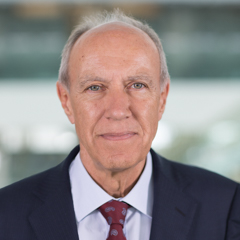Message from WIPO DG Gurry on the International Day of the World’s Indigenous Peoples
August 6, 2015
It is with deep appreciation and respect that the World Intellectual Property Organization (WIPO) joins in celebrating the International Day of the World’ s Indigenous Peoples on August 10.

(photo: WIPO).
WIPO is committed to setting up a balanced and effective international intellectual property system that is development-oriented, and enables innovation and creativity for the benefit of all, including groups such as Indigenous Peoples. In so doing, WIPO will continue contributing to the achievement of the Millennium Development Goals, as well as to the forthcoming post-2015 Development Agenda and the Sustainable Development Goals to be submitted for adoption by the United Nations General Assembly Summit in September 2015.
This year’s theme for the International Day of the World’s Indigenous Peoples - “The Post-2015 Agenda: Ensuring Indigenous Peoples health and well-being” - encompasses a large range of issues, such as the participation and inclusion of Indigenous Peoples in broader development-oriented policies.
In line with its strategic objective to promote the use of intellectual property for the well-being of all, WIPO’s outreach includes seminars, practical workshops, briefs and guides that explain the use of existing intellectual property tools, like copyright, trademarks and geographical indications, including for those Indigenous Peoples who would wish to use such tools for their own benefit. The traditional knowledge and traditional cultural expressions of Indigenous Peoples form part of their core identities and are essential to their well-being and social cohesion.
The cultural heritage of Indigenous Peoples also embodies significant innovation and creativity and constitutes a valuable source of inspiration and knowledge for society at large as well as for creators and inventors, from fashion designers to the pharmaceutical industry, from musicians to farmers. Traditional knowledge could also play an important role in addressing global challenges, from inspiring ways for peoples to live in harmony with the environment, mitigate the effects of climate change or enhance public health and food security.
Intangible cultural heritage is prone to what is perceived by many as misappropriation and misuse: it is valuable and at the same time largely accessible, while it is only partly protected under the present international intellectual property system. Addressing these issues at the international level would help Indigenous Peoples to better control and draw more benefit from the utilization of their traditional knowledge and traditional cultural expressions, should they so wish to do so.
WIPO member states initiated negotiations in 2009 with the objective of reaching agreement on an international legal instrument or instruments which will ensure the effective protection of genetic resources, traditional knowledge and traditional cultural expressions.
In line with Articles 18 and 31 of the United Nations Declaration on the Rights of Indigenous Peoples, the role and interests of Indigenous Peoples as key stakeholders in these intergovernmental negotiations have been reflected both in the options included in the drafts texts that have been developed so far, and in the various modalities that contribute greatly to the full and direct participation of Indigenous Peoples in the WIPO negotiations.
In this regard, WIPO welcomes the outcome document of the World Indigenous Conference adopted by the United Nations General Assembly on September 22, 2014, which reaffirmed member states’ support for the Declaration.